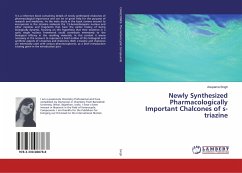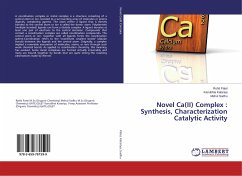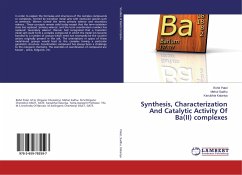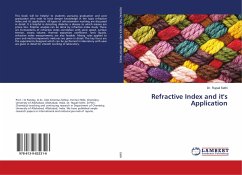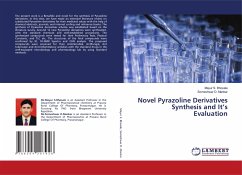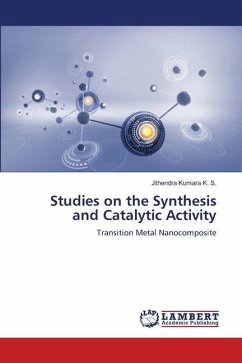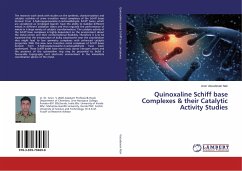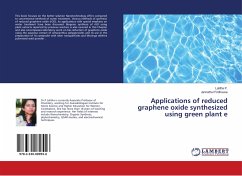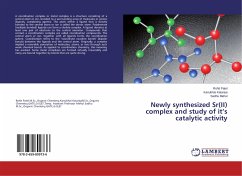
Newly synthesized Sr(II) complex and study of it's catalytic activity
Versandkostenfrei!
Versandfertig in 6-10 Tagen
36,99 €
inkl. MwSt.

PAYBACK Punkte
18 °P sammeln!
A coordination complex or metal complex is a structure consisting of a central atom or ion, bonded to a surrounding array of molecules or anions (ligands, complexing agents). The atom within a ligand that is directly bonded to the central atom or ion is called the donor atom. Polydentate (multiple bonded) ligands can form a chelate complex. A ligand donates at least one pair of electrons to the central atom/ion. Compounds that contain a coordination complex are called coordination compounds. The central atom or ion, together with all ligands forms the coordination sphere. Coordination refers t...
A coordination complex or metal complex is a structure consisting of a central atom or ion, bonded to a surrounding array of molecules or anions (ligands, complexing agents). The atom within a ligand that is directly bonded to the central atom or ion is called the donor atom. Polydentate (multiple bonded) ligands can form a chelate complex. A ligand donates at least one pair of electrons to the central atom/ion. Compounds that contain a coordination complex are called coordination compounds. The central atom or ion, together with all ligands forms the coordination sphere. Coordination refers to the "coordinate covalent bonds" (dipolar bonds) between the ligands and the central atom. Originally, a complex implied a reversible association of molecules, atoms, or ions through such weak chemical bonds. As applied to coordination chemistry, this meaning has evolved. Some metal complexes are formed virtually irreversibly and many are bound together by bonds that are quite strong.



